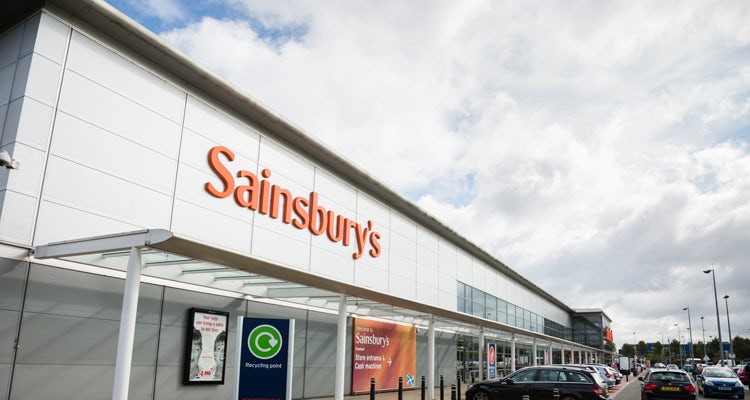Coca-Cola, ITV, Amstel: 5 things that mattered this week and why
Catch up on all the marketing news from the past week including another new product launch from Coke, ITV’s effectiveness reboot and Visa’s growing commitment to women’s football.
Coca-Cola enters alcohol space in latest launch
It seems Coca-Cola can’t go a week without launching a new product at the moment, so fast is its innovation pipeline. The brand launched premium mixer brand Coca-Cola Signature Mixers this week which sees it branch out into the alcohol space for the first time.
At first glance it seems a redundant move, after all who hasn’t enjoyed a rum and Coke? But Coca-Cola’s new mixers line, which comprises four flavours, is a smart move that sees it tapping into a key alcohol trend.
It is no secret that consumers are drinking less but they are also drinking better. The likes of Fever Tree have proved that consumers will pay more for premium when it comes to mixers, after all why would you want your tonic (or Coke) to ruin your expensive drink?
The launch of Coca-Cola Signature Mixers is, of course, another sign of its continuing commitment to become a ‘total beverage company’ but it is more interesting to look at its speedy innovation pipeline.
From bottled water Aquarius to its first energy drink, the FMCG giant is pumping out products but these mixers have the fastest timeline to date it seems, with mixologists only developing the flavours in March of last year.
Is this the pace of production for Coke now? Or will the brand have a mix of quick consumer-focused products and more longer-lead launches? Ultimately it will be interesting to see when it will slow and down and let the dust settle in order to appraise if this tactic is truly working. MF
READ MORE: Coca-Cola moves into alcohol market with premium mixers
ITV shares details of ramped up marketing strategy
It’s been just over 12 months since ITV unveiled its ‘More Than TV’ strategy under the leadership of new CEO Carolyn McCall.
2019 marked the start of its brand advertising activity with a number of short films. Now, Marketing Week can reveal what’s been going on behind closed doors in this “new era for marketing”.
First of all, ITV has hired two new marketers, which it will officially announce in June, to help build its direct-to-consumer business. This forms part of ITV’s strategy to turn 15 million ‘light’ viewers into regular ITV viewers, and then turn those into “transactional” moments, i.e. getting people to subscribe to its on-demand Hub platform or BritBox when it launches later this year.
It has also given its brand metrics a complete “revamp and reboot”. This has included the introduction of a new measure around ‘spontaneous brand consideration’, which ITV says is at the heart of what it is trying to do.
This means putting some quantifiable numbers behind whether people would spontaneously consider ITV as a brand when they watch TV.
Which might feel like a very simple metric, but ITV believes this is what will help it know whether it is successfully changing people’s attitudes towards ITV as a broadcaster and brand.
The brand films it has released already this year are certainly impactful and demonstrate the role ITV has played in shaping culture over the decades. And the changes ITV has made, and is making, internally point to a legacy media owner which is on the front-foot and determined to keep up in a tricky digital world.
Whether it has the intended effect will come down to those all-important spontaneous consideration metrics, which, for obvious reasons, ITV is keeping very close to its chest. EH
READ MORE: ITV ‘reboots’ brand and effectiveness measures as it drives ‘new era for marketing’
Amstel aims to create an ‘inclusive’ beer amid crowded market

The booze market is in overdrive at the moment as brands begin the summer scramble to capitalise on warming months and bank holiday drinks.
Amstel is the latest to join them with a new campaign, fronted by actor Jeff Bridges, that encourages consumers to ‘bridge’ divides over a beer. It hopes the ad will increase “saliency, memorability and general awareness of the brand” in an increasingly competitive beer market.
However, in the shadow of Carlsberg’s huge turnaround, Amstel’s homage to Amsterdam and inclusivity feels a little bit lacklustre.
Nic Casby, brand director at parent company Heineken, applauded Carlsberg’s “brave” relaunch of its pilsner, but says he and his team aren’t “sitting here worrying about what [Carlsberg is] doing.”
Perhaps it should be. Consumers are fast becoming bored of subtle nods to diversity and brand purpose. Instead, it is a time to go bold or go home, like Nike or Carlsberg, and tell people exactly what you stand for.
Casby made it clear that Amstel’s ad isn’t political but with Brexit, Trump and climate emergencies, maybe it should have been more overt.
Ultimately Amstel remains a popular beer and it is not struggling like others. But if it continues with safe marketing there is a chance it might fall behind. MF
READ MORE: Amstel applauds Carlsberg’s ‘bold’ approach
Sainsbury’s trials checkout-free store and eyes up non-food

It’s been a busy week for Sainsbury’s. First, it opens the UK’s first checkout-less store in central London. Then it announces yearly profit has fallen by almost 42%. All this only a week after it found out the competition regulator decided to block its proposed merger with Asda.
That’s a lot to digest for a challenged business struggling to find its place in the UK’s competitive grocery market.
Sainsbury’s believes there are significant opportunities in the non-food space and is pinning its hopes on being a “net beneficiary” from consolidation of the retail market.
This means it will be looking to expand its ‘experimental’ Selly Oak superstore – which includes a number of concession stores and a food court – to other branches.
But it feels like it is Sainsbury’s grocery business that needs some real TLC. And as a mid-market brand it needs to decide quickly where it wants to sit on the price/quality spectrum – and stick with it so there’s some consistency to its strategy and positioning.
On the checkout-less front, we will know in three months whether the trial will be rolled-out to other stores. Most of the payments in its Holborn Circus branch are already cashless so it makes sense to test it there, but even then shoppers need to get a Nectar card and Nectar app, and/or have Apple Pay or Google Pay, which not everyone wants to do.
TCC Global analyst Bryan Roberts says it sounds like quite a few people have been walking out of the checkout-less store and going to Boots next door instead or the Sainsbury’s across the road. There have apparently been 15-deep queues to use the help desk that can accept cash or cards too, which defeats the point of the store and doesn’t bode too well. EH
Visa ups its commitment to women’s football with World Cup activations

Visa is using its sponsorship of the FIFA Women’s World Cup as a platform to empower and celebrate women from all walks of life.
Yesterday (2 May) the payments giant unveiled its World Cup campaign as it looks to be a catalyst for change and help women’s football out of a “vicious circle” of poor exposure and lack of sponsorship money.
According to Visa’s marketing director for the UK and Ireland, Suzy Brown, the company wants to provide female athletes with a platform to tell their stories in order to grow engagement and offer fans a more personal link to the sport. This way its partnership of the women’s game won’t be seen as an add-on.
The global campaign will launch in 33 markets and features one 60-second spot as well as a series of short personal documentaries, inspired by the true stories of Visa ambassadors and football stars such as Lucy Bronze (Great Britain), Kim Little (Scotland), and Nadia Nadim (Denmark).
“When people make decisions about brands, sure it’s about the product, but it’s also a lot about what a brand stands for: its beliefs, its views and more critically its actions,” Brown told Marketing Week.
It’s all well and good for brands to say they want to support women’s sport but Visa is actually putting its money where its mouth is.
The company has promised to spend as much on marketing for the women’s tournament in France as it did on the men’s FIFA World Cup in Russia last year. It also signed a landmark seven-year partnership with UEFA women’s football late last year, making Visa the biggest global sponsor of women’s football.
It is clear this isn’t just a marketing gimmick but a full-blown commitment to championing women’s sport. Other brands should take note. EL
READ MORE: Visa looks to end ‘vicious circle’ in women’s football as it launches World Cup campaign








